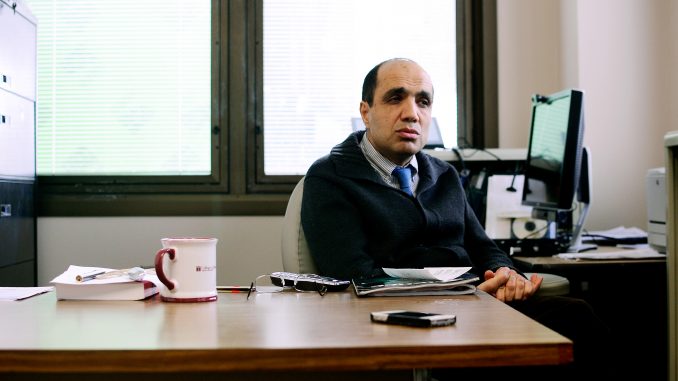
A course within the mechanical engineering department is seeking to teach students about the developing world of technology and engineering in healthcare systems and the ethical dilemmas humans experience when treating people with machines.
Several years ago, senior faculty members in the College of Engineering were asked to develop courses that can be applied to everyday issues. Mechanical engineering department Chair Mohammad Kiani and Associate Dean George Baran developed the The Bionic Human, a class that allows students to take a closer look at healthcare and science.
In addition to the course, the College of Engineering introduced a new major into its curriculum, a bachelor of science in bioengineering, to target one of the fastest growing engineering fields in terms of employment.
“It is important for students to have a sense of what happens when you go to the doctor’s office, what they are sticking in our bodies and how you get treated for certain diseases,” Kiani said.
Kiani and Baran said students in the course gain a better understanding of how science and engineering work, as well as how new technologies are developed. Additionally, the course discusses ethical and legal implications such as cloning and life-or-death scenarios, including whether or not to disconnect a loved one from a machine.
Although the course has been around for several years, it now features a new textbook written by Kiani and Baran.
One activity done in the course is a mock healthcare company lab to help students make decisions on what is best for them and their wallets..
“Part of finding a good job is finding good healthcare in the U.S. and understanding healthcare issues as well as insurance issues,” Kiani said.
Baran said one of the course objectives is to relate developments in technology to the lives of the students, for example, treatments that their parents or grandparents have endured.
“We try to draw those stories so that students understand, and that it’s not some sort of ‘ivory tower’ discussion,” Baran said.
Lectures about cosmetic and intellectual enhancement are also included in the course. One topic being the ethical implications behind the use of Adderall in college students.
Kiani and Baran have the ultimate goal of students being more inquisitive about their healthcare in order to receive more quality time with their doctor, as well as question and analyze new scientific developments to be more educated consumers.
“Dr. Baran is the one that always says, ‘Your generation is probably going to end up voting on [how many rights] to give robots,’” Kiani said. “I know it sounds like science fiction, but maybe not. After taking a course like this, maybe you realize that it’s not that far-fetched.”
Logan Beck can be reached at logan.beck@temple.edu.



Be the first to comment